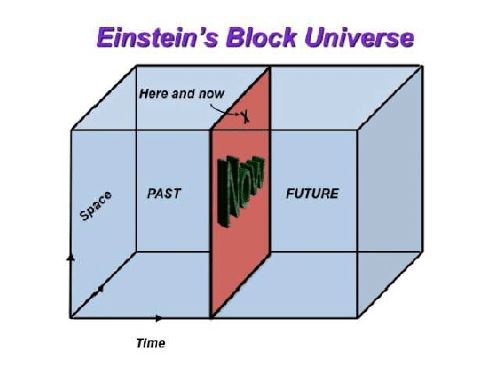TENET is a pretty mind-bending movie that deals with the complexities of entropy, theoretical physics, and the flow of time. Throughout this post, we’re gonna be going through the ins and outs of the science behind the film and giving our thoughts on how it all works.
There will be some spoilers here so if you haven’t had the time to check out the movie yet then I highly recommend that you turn away now.
Time Travel Explained
Tenet subscribes to the theory that there exists only one timeline and that if one were to travel back to the past, they would not be able to alter things and instead would simply end up playing into the events that happened so that the future could follow the same course.
This means that time is not malleable and everything that will happen will happen exactly how it’s supposed to.
In theoretical physics, there actually exists a manner of thinking known as the block universe theory which states that all of time is actually happening at once and we merely give it the notion of past, present and future because of our inability to comprehend its vastness.
It’s something that fiction has toyed with, most notably Doctor Manhattan who was able to see every moment in his life simultaneously but the depths of it go far beyond comic book characters.

What is Spacetime?
Now time is very difficult to explain and I’ll try my best to go over the block universe theory with diagrams and relatable things so do bear with me.
Before going into everything though we have to discuss what spacetime is.
Spacetime is the measurement of the three dimensions of space fused as well as time which creates a four-dimensional manifold that can be carried across into coordinates.
Imagine a grid, like a Rubik’s cube, to map out what exactly space-time is and how these building blocks of it all fall in line to create a precise measurement that we can understand.
Now I’m going to label this your day, I’m not spying on you don’t worry, but once you get to grips with this model it should hopefully get your head around the entire thing.
Ok so imagine this is actually your day mapped out in the form of a cube.
At 8:00 am you wake up, so we would mark this down as a time on the cube and because we know the location of your home…because I am spying on you…we can mark down the exact coordinates of this giving us a precise moment of spacetime once we also factor in today’s date.
Now imagine each one of these cubes within the cube is a point in your day.
Because we have the location we and time that you are at said location, we can map out precise coordinates.
We could mark out the entire day, minute by minute, hour by hour and create a perfect picture of your day. Wait why are the coordinates of when you go to bed different to when you woke up…Hey wait that’s my mum’s house.
That’s pretty much spacetime in as simplified a way as I can present it.
Now if we took that entire block as one day and then put it into a bigger cube, we could actually map out the entirety of your life day to day with us potentially having precise coordinates for every single moment in your life.
They even have a scene in the movie Interstellar in which we see every single moment laid out like this second by second, minute by minute, hour by hour.
Bring this all together on a grander scale of not just your life but every single thing in the entire universe and we have a complete map of everything with all time happening at once.
Similar to molecules within a brick, each minute, each moment is helping to make up the whole but our brains are just too focused on the here and now to see the bigger picture.
How Does This Apply to Tenet?
Now what the characters in Tenet do is that they reverse their entropy to move backwards through time.
Typically we move forwards viewing the past as the past and the future as the future but the time inversion in Tenet allows someone to change their perspective so that they move backwards through the block.
But what is entropy exactly?
Well the LA times spoke to a theoretical physicist from Imperial College London Claudia De Rham, to discuss it and she had this to say.
Entropy is the measure of the level of order or the level of information. There’s a really fundamental law in physics telling us that entropy always increases. On average, things get more and more disorganized. That’s why we grow older — our body gets slowly more and more disorganized. That’s why it’s much easier to destroy something than to construct something. At the physical level, if you have a box and you put some gas in it, the gas will start taking up the whole space. It will spread and get more and more disorganized. When entropy increases, it means things are becoming less and less organized.
So, entropy is pretty much the measure of disorder in thermodynamics. So for example if we smash some glass the glass will fracture but at no point will it move back together and it will remain in this disordered state.
When discussing if it was possible to invert the entropy of an object, Claudia stated:
A fridge, for instance, is a device where you lower the entropy so that things are cooler — when things are cooler they have less entropy. If you think of ice, it’s cooler and static and well organized. When you heat it up, the entropy increases and it becomes liquid and then it becomes a gas and it becomes less organized. A fridge or a freezer inverts it for you. So we know that it’s very possible to have devices that reverse the entropy. But it doesn’t mean that time goes the other way in your fridge. When I put food in my fridge it doesn’t get fresher and fresher every day. But it’s definitely possible to have a device that decreases the entropy of an object. The connection with having the internal clock of that object going backwards is a little bit of an extrapolation. But that’s part of the poetry, right? That’s the fiction in science fiction.
So several things happen but the way the film presents it is different to how we truly understand entropy in real life.
Reversing Entropy Effects
In my research, an interesting thing that I found is that you would actually need to take oxygen back with you so Nolan was indeed correct in the way equipment that the characters used. However, where things would fall apart is through our eyesight.

We can see things because light hits an object and then bounces into our eyes, however, if time were reversed the light would travel backwards from our eyes, then hit the object before travelling back to the light source.
So we wouldn’t actually see objects and instead, we would simply see the light.
This would mean that we couldn’t actually see what was around us and thus moving would be extremely difficult.
Is Tenet Science Accurate?
When discussing the whole heat and freezing thing that happens in the movie, Claudia also dismissed this as not being the case stating that:
That’s absolutely not what would happen. It’s like saying, “If something was white it would become black.” It’s not like everything becomes the opposite of each other. The reason we feel the heat is because molecules in the air hit a surface. That’s what we feel, the constant hitting of particles on us. If [the molecules’] time went backwards with respect to us they would hit the other way, but they would still hit. We would still feel them hitting and we would still feel this notion of heat.
So no, The Protagonist wouldn’t get hypothermia from being set on fire.
However, this is just a film at the end of the day and it’s a pretty cool effect.
Similar to Interstellar though the science isn’t completely sound it still makes for a really fun ride and I have to say that the more and more that I watch Tenet the more I appreciate its little intricacies and use of time to explain its story.
Claudia says that time travel is an impossibility but in this particular case, it’s not really time travel, more inverting the notion of how we perceive time. This means that things still do not change but rather, we experience them in a totally different manner due to the cause and effect nature of the universe being reversed to be a certain way.
The characters in the movie are all beholden to the structures of time and how things are in place and though they believe that they have free will, when it boils down to it they really don’t. Thus Neil always has to sacrifice himself no matter what and things have to happen the way that they have to happen.
Your Thoughts
Now I’d love to hear your thoughts on the science behind the film and if there’s anything you’d like to add then please drop a comment below. If you enjoyed this video and want something else related to Tenet to watch then make sure you check out our breakdown of Neil’s timeline which is gonna be linked at the end.




Leave a Comment
You must be logged in to post a comment.